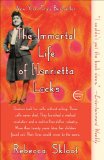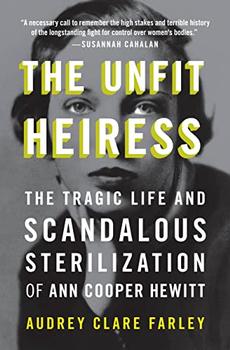Summary | Excerpt | Reading Guide | Discuss | Reviews | Beyond the book | Read-Alikes | Genres & Themes | Author Bio

Winner of BookBrowse's 2010 Best Book Award
Intimate in feeling, astonishing in scope, and impossible to put down, The Immortal Life of Henrietta Lacks captures the beauty and drama of scientific discovery, as well as its human consequences.
Winner of BookBrowse's 2010 Best Book Award
Her name was Henrietta Lacks, but scientists know her as HeLa. She was a poor Southern tobacco farmer who worked the same land as her slave ancestors, yet her cells—taken without her knowledge—became one of the most important tools in medicine. The first “immortal” human cells grown in culture, they are still alive today, though she has been dead for more than sixty years. If you could pile all HeLa cells ever grown onto a scale, they’d weigh more than 50 million metric tons—as much as a hundred Empire State Buildings. HeLa cells were vital for developing the polio vaccine; uncovered secrets of cancer, viruses, and the atom bomb’s effects; helped lead to important advances like in vitro fertilization, cloning, and gene mapping; and have been bought and sold by the billions.
Yet Henrietta Lacks remains virtually unknown, buried in an unmarked grave.
Now Rebecca Skloot takes us on an extraordinary journey, from the “colored” ward of Johns Hopkins Hospital in the 1950s to stark white laboratories with freezers full of HeLa cells; from Henrietta’s small, dying hometown of Clover, Virginia — a land of wooden slave quarters, faith healings, and voodoo — to East Baltimore today, where her children and grandchildren live and struggle with the legacy of her cells.
Henrietta’s family did not learn of her “immortality” until more than twenty years after her death, when scientists investigating HeLa began using her husband and children in research without informed consent. And though the cells had launched a multimillion-dollar industry that sells human biological materials, her family never saw any of the profits. As Rebecca Skloot so brilliantly shows, the story of the Lacks family — past and present — is inextricably connected to the dark history of experimentation on African Americans, the birth of bioethics, and the legal battles over whether we control the stuff we are made of.
Over the decade it took to uncover this story, Rebecca became enmeshed in the lives of the Lacks family—especially Henrietta’s daughter Deborah, who was devastated to learn about her mother’s cells. She was consumed with questions: Had scientists cloned her mother? Did it hurt her when researchers infected her cells with viruses and shot them into space? What happened to her sister, Elsie, who died in a mental institution at the age of fifteen? And if her mother was so important to medicine, why couldn’t her children afford health insurance?
Intimate in feeling, astonishing in scope, and impossible to put down, The Immortal Life of Henrietta Lacks captures the beauty and drama of scientific discovery, as well as its human consequences.
Skloot strikes a tricky balance between inserting herself into the narrative and stepping back to let the Lacks family, the heart and soul of the book, tell their stories. For the most part she succeeds... Just as she brings dignity to the individuals who make scientific investigation possible, she also expertly lays out the pros and cons of the current tissue research debate... an engaging introduction to these issues, one that hooks the reader with its emphasis on the real people behind the controversy...continued
Full Review
(683 words)
This review is available to non-members for a limited time. For full access,
become a member today.
(Reviewed by Marnie Colton).
Cervical cancer, the disease that killed Henrietta Lacks, strikes 11,000-13,000 women in the United States every year, killing 4,000. While the Pap smear (developed by Greek scientist Georgio Papanikolaou) remains the most widely used and effective method for detecting pre-cancerous cells on the cervix, a new vaccine protects women from developing certain kinds of human papillomavirus (HPV), the condition that causes most cervical cancers. Yet controversy swirls around this vaccine in the United States, raising ethical issues such as whether to require mandatory vaccination for girls entering school and sparking fears that vaccinations might reduce the practice of safer sex methods or even lead to promiscuity. Others worry that the vaccine ...
This "beyond the book" feature is available to non-members for a limited time. Join today for full access.

If you liked The Immortal Life of Henrietta Lacks, try these:

by Audrey Farley
Published 2023
For readers of The Immortal Life of Henrietta Lacks and The Phantom of Fifth Avenue, a page-turning drama of fortunes, eugenics and women's reproductive rights framed by the sordid court battle between Ann Cooper Hewitt and her socialite mother.

by Dolen Perkins-Valdez
Published 2023
Inspired by true events that rocked the nation, a profoundly moving novel about a Black nurse in post-segregation Alabama who blows the whistle on a terrible wrong done to her patients, from the New York Times bestselling author of Wench.
I am what the librarians have made me with a little assistance from a professor of Greek and a few poets
Click Here to find out who said this, as well as discovering other famous literary quotes!